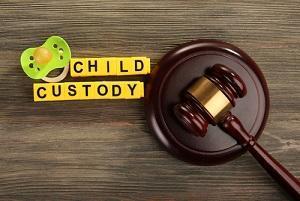Recent Blog Posts
What Happens to my Pets in a Divorce?
 Married or unmarried people sincerely love their pets. Roughly 78 million dogs and 86 million cats are owned throughout our nation. When a marriage between pet owners ends in divorce, one of the most contentious matters to navigate through is deciding who will take ownership of the pets in the dividing household.
Married or unmarried people sincerely love their pets. Roughly 78 million dogs and 86 million cats are owned throughout our nation. When a marriage between pet owners ends in divorce, one of the most contentious matters to navigate through is deciding who will take ownership of the pets in the dividing household.
Are Pets Subject to Court Ordered Visitation?
Illinois law mandates that “any person having a right of property in an animal, or who keeps or harbors an animal, or who has it in his care, or acts as its custodian is that animal’s owner.”
For example, a spouse who leaves the home of his or her ex-spouse who then attempts to assert ownership of the pet he left will likely have a difficult time getting a court to agree. The court would likely rely on previous Illinois law to determine who the legal owner of the animal was. In that event, the court would probably decide that since the husband had left the home, the pet was legally owned by the now ex-wife.
Property Division in Divorce
 Going through a divorce is a complex issue both legally and emotionally. Many contentious issues must be decided on including, child custody, child support, and property division. When a house is part of the property that needs to be divided the tenants of divorce law are used to determine how the home or the home's value is shared between the spouses. It takes an experienced and insightful DuPage County divorce lawyer to navigate this treacherous legal terrain successfully.
Going through a divorce is a complex issue both legally and emotionally. Many contentious issues must be decided on including, child custody, child support, and property division. When a house is part of the property that needs to be divided the tenants of divorce law are used to determine how the home or the home's value is shared between the spouses. It takes an experienced and insightful DuPage County divorce lawyer to navigate this treacherous legal terrain successfully.
Equitable Division
Illinois law controls how real property is divided in a divorce. Illinois is an "equitable division state." That means that the law does not require that marital assets be divided equally among divorcing spouses. Instead, the law requires that property is distributed equitably. Judges rely on several variables to determine what an equitable division of property is, however, Illinois courts are forbidden to consider marital misconduct for property division. Instead, judges are instructed to consider:
The Difference Between Marriage and a Civil Union
 Spending a lifetime with our loved ones is a beautiful thought. Thinking about what kind of house you are going to buy, if you are going to have children, maybe even pets can bring warm and fuzzy feelings into your heart. Many people consider marriage as a way to solidify their connection with their loved one. However, that is not the only option. Civil Unions are a less common way to create a binding union between loved ones.
Spending a lifetime with our loved ones is a beautiful thought. Thinking about what kind of house you are going to buy, if you are going to have children, maybe even pets can bring warm and fuzzy feelings into your heart. Many people consider marriage as a way to solidify their connection with their loved one. However, that is not the only option. Civil Unions are a less common way to create a binding union between loved ones.
What is a Civil Union?
A civil union is a legal status much like a marriage. Civil unions provide many of the same legal protections that marriage does. One key difference, however, is the legal protections exist at the state level. Federal protections like tax breaks and Social Security benefits are not built into a civil union the way they are a marriage.
While marriage is recognized in all 50 states, civil unions are not. The only states that currently recognize civil unions are Illinois, New Jersey, Hawaii, and Colorado.
The Cost of Divorce
 Getting a divorce can be very emotionally taxing. Divorce can also be monumentally expensive. There are seemingly cost that come out of nowhere, especially in cases where the divorce is contested, or there are children involved. More and more people are trending towards collaborative law as a means to keep the financial burden of getting a divorce minimized.
Getting a divorce can be very emotionally taxing. Divorce can also be monumentally expensive. There are seemingly cost that come out of nowhere, especially in cases where the divorce is contested, or there are children involved. More and more people are trending towards collaborative law as a means to keep the financial burden of getting a divorce minimized.
How Expensive Can Divorce Be?
That depends largely on the type of issues that need to be resolved. There is no universal cost for a contested or uncontested divorce. The average divorce in Illinois cost roughly $13,800. More than half of that figure will likely be allocated towards fees for your lawyer. The average hourly rate for a divorce attorney is $260.
The size of the firm, the amount of staff that works on your case, as well as the total time spent on your case will be the determining factor for how much you will pay in attorneys fees. Other expenses may include:
How can Infidelity Affect Your Alimony in a Divorce?
 After a divorce, many people find out that there are certain evaluations about what they have contributed to the marriage financially that must be made. There can be circumstances where both the husband and wife work outside the home and share equal earning power. Another common scenario is where one party to the divorce primarily contributes time and energy to the development of the family and home while the other works outside of the home to primarily provide financial stability.
After a divorce, many people find out that there are certain evaluations about what they have contributed to the marriage financially that must be made. There can be circumstances where both the husband and wife work outside the home and share equal earning power. Another common scenario is where one party to the divorce primarily contributes time and energy to the development of the family and home while the other works outside of the home to primarily provide financial stability.
Alimony, which in Illinois is called maintenance, is the money that one spouse pays the other to ensure that both parties are situated in a financially equitable position after the divorce. The idea behind alimony is ensuring that one spouse is not unjustly enriched at the expense of the other spouse.
When Is Alimony Ordered in the Divorce Process?
Illinois law dictates that a judge can order either party to pay alimony or maintenance while the divorce is proceeding. However, an order for alimony can also be entered in the final order or during an appeal that’s filed after the divorce has concluded.
Child Support Overhaul
 Child support is often a contentious part of a divorce. A massive change to the way that child support is calculated is set to take effect this July. It updates and streamlines an outdated method of calculating child support.
Child support is often a contentious part of a divorce. A massive change to the way that child support is calculated is set to take effect this July. It updates and streamlines an outdated method of calculating child support.
Under current Illinois law, child support is calculated using a fixed formula that requires a non-residential parent to pay a fixed percentage of their income. This was problematic because the one size fits all formula produced results that did not satisfy the needs of the child nor were the calculations developed to address the best interest of any children involved.
How Will Child Support Be Calculated Under the New Law?
Instead of using a static formula for every case that the courts preside over, the new law set to take effect in July uses an income sharing model to calculate the amount of money each parent will be responsible for. The profit sharing model means that courts will first determine the amount of money that would be spent on childcare if the child or children’s parents were not getting divorced. Once that amount has been determined the court then factors in variables like:
YouTube Personality Loses Custody of Children Over Videos
 A popular—albeit rather infamous—YouTube personality who goes by the username “DaddyOFive” has lost custody of two of his children. The kids are currently staying with their biological mother. The father gained notoriety on the video sharing site when he started posting videos of interactions between himself, his current wife, and children. The videos contain a number of “pranks” played on the children—acts which many viewers and commenters found to be cruel and even abusive.
A popular—albeit rather infamous—YouTube personality who goes by the username “DaddyOFive” has lost custody of two of his children. The kids are currently staying with their biological mother. The father gained notoriety on the video sharing site when he started posting videos of interactions between himself, his current wife, and children. The videos contain a number of “pranks” played on the children—acts which many viewers and commenters found to be cruel and even abusive.
Pushing Things Too Far
In one controversial video, a smiling woman appears and explains that her stepson had previously gotten in trouble for spilling ink on the carpet. She tells the camera that she is going to act like the child did it again. The woman sprays disappearing ink onto the carpet, then she and the child’s father call the son into the room. What follows is disturbing to many viewers: The two adults verbally berate the child for the spilled ink, screaming and cursing loudly at him. The child begins crying as he desperately tries to explain that he did not spill the ink. The verbal abuse goes on for an agonizing three full minutes before the parents laughingly tell the child that it was “just a prank.”
Considerations for Child Custody
 Even the most congenial divorce proceedings come with their own set of challenges. These are life-changing, stressful, heartbreaking and complicated times for everyone involved. Children are often caught in middle of the legal battles, and their concerns are just as real those of their parents’. It is not unreasonable for them to have concerns about who they will stay with, whether they will stay at the same school, or continue to live near their friends.
Even the most congenial divorce proceedings come with their own set of challenges. These are life-changing, stressful, heartbreaking and complicated times for everyone involved. Children are often caught in middle of the legal battles, and their concerns are just as real those of their parents’. It is not unreasonable for them to have concerns about who they will stay with, whether they will stay at the same school, or continue to live near their friends.
Different States, Different Rules
Child custody laws vary from state to state, and different counties or districts within each state may also have established protocols when it comes to making decisions regarding the children. Because of the differences in custody laws in different state, the Uniform Child Custody Jurisdiction and Enforcement Act (UCCJEA) was drafted and adopted by 49 states—including Illinois—and the District of Columbia to help streamline custody rulings country.
Six Tips to Make Your Divorce Easier
 Some divorces can take years to resolve, which can lead to many unfavorable consequences for both parties. However, many divorces can be resolved on a quicker timeline and with fewer attorney’s fees.
Some divorces can take years to resolve, which can lead to many unfavorable consequences for both parties. However, many divorces can be resolved on a quicker timeline and with fewer attorney’s fees.
To streamline your divorce proceedings, consider the following tips:
1. Agree with your soon-to-be ex-spouse as much as possible.
This is called an uncontested divorce. The simplest divorces involve spouses who agree that a divorce is needed. In these cases, a spouse is not trying to escape a process server or file unnecessary motions to delay a divorce from being finalized. There are also a number of other concerns that could be settled with little or no court intervention. For example, if the spouses agree on how parental responsibilities or the marital property should be divided, these issues will not need to be developed by the attorneys and decided by a judge.
2. Have a prenuptial or postnuptial agreement.
The Challenges of High End Divorce
 Divorce is not always fraught with tension and difficulties between parties. Often amicable agreements and a shared understanding can make the process smoother. Either way, skilled legal representation is crucial to ensure all eventualities considered. Over 2,200 divorces and annulments in DuPage County occurred in 2013 alone, a number which equals about half of the marriages that took place. This demonstrates that divorce rates are significant and the process requires skilled legal advice and representation to navigate. This is more so in the cases of couples who have significant assets. These “high end” or “complex” divorces entail several more layers of analysis and an equally skilled divorce attorney.
Divorce is not always fraught with tension and difficulties between parties. Often amicable agreements and a shared understanding can make the process smoother. Either way, skilled legal representation is crucial to ensure all eventualities considered. Over 2,200 divorces and annulments in DuPage County occurred in 2013 alone, a number which equals about half of the marriages that took place. This demonstrates that divorce rates are significant and the process requires skilled legal advice and representation to navigate. This is more so in the cases of couples who have significant assets. These “high end” or “complex” divorces entail several more layers of analysis and an equally skilled divorce attorney.
Substantial Assets
There are several financial holdings that could contribute to a marriage accumulating significant assets. So, when it comes to dividing them and the “equitable distribution’ of assets, matters can get complicated. The court takes into consideration many factors to make a fair and just distribution of assets.

 630-409-8184
630-409-8184













